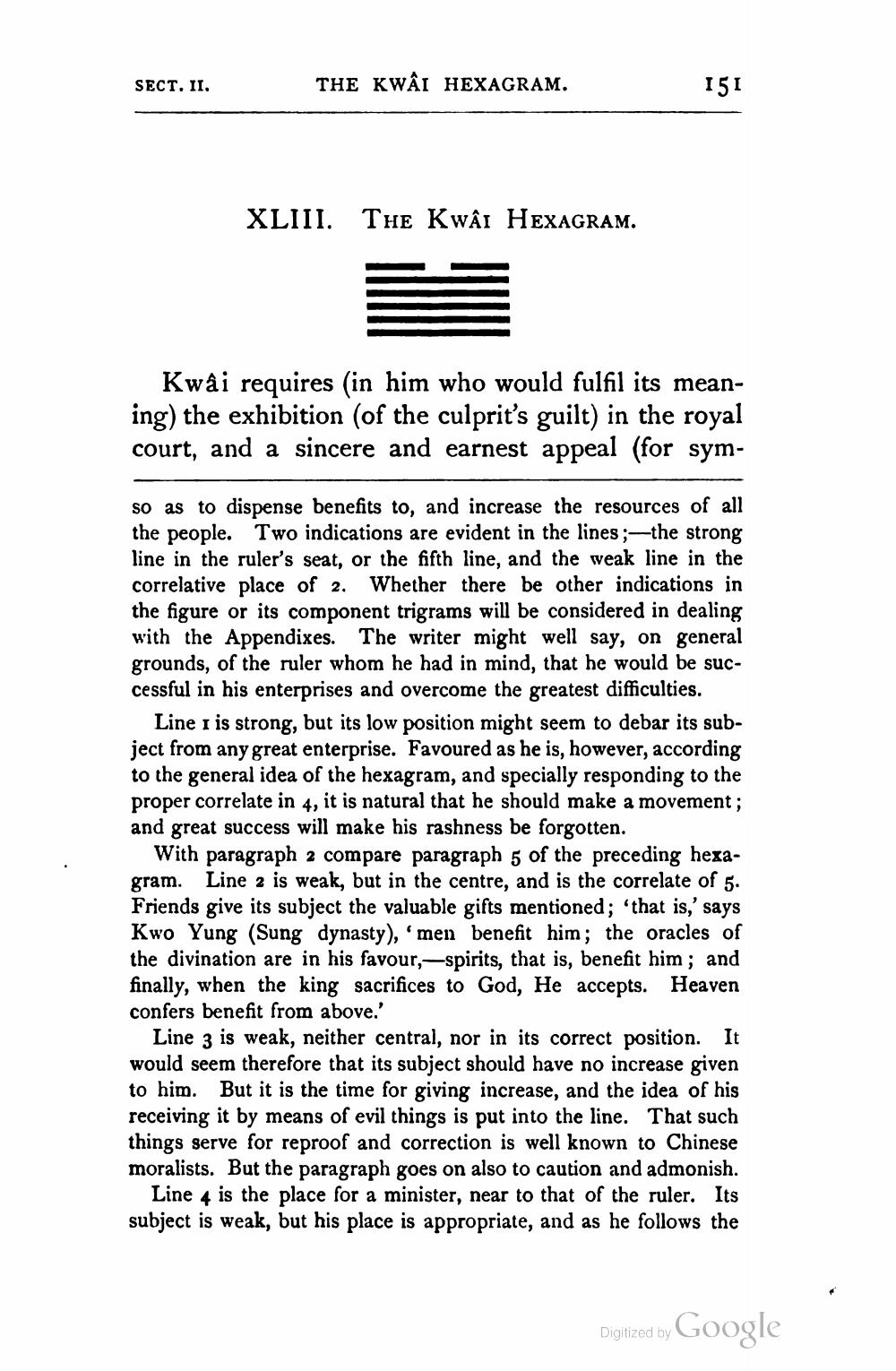________________
SECT. II.
THE KWÂI HEXAGRAM.
151
XLIII. THE KwÂI HEXAGRAM.
Kwai requires (in him who would fulfil its meaning) the exhibition (of the culprit's guilt) in the royal court, and a sincere and earnest appeal (for sym
so as to dispense benefits to, and increase the resources of all the people. Two indications are evident in the lines ;-the strong line in the ruler's seat, or the fifth line, and the weak line in the correlative place of 2. Whether there be other indications in the figure or its component trigrams will be considered in dealing with the Appendixes. The writer might well say, on general grounds, of the ruler whom he had in mind, that he would be successful in his enterprises and overcome the greatest difficulties.
Line I is strong, but its low position might seem to debar its subject from any great enterprise. Favoured as he is, however, according to the general idea of the hexagram, and specially responding to the proper correlate in 4, it is natural that he should make a movement; and great success will make his rashness be forgotten.
With paragraph 2 compare paragraph 5 of the preceding hexagram. Line 2 is weak, but in the centre, and is the correlate of 5. Friends give its subject the valuable gifts mentioned; that is,' says Kwo Yung (Sung dynasty), men benefit him; the oracles of the divination are in his favour,--spirits, that is, benefit him; and finally, when the king sacrifices to God, He accepts. Heaven confers benefit from above.'
Line 3 is weak, neither central, nor in its correct position. It would seem therefore that its subject should have no increase given to him. But it is the time for giving increase, and the idea of his receiving it by means of evil things is put into the line. That such things serve for reproof and correction is well known to Chinese moralists. But the paragraph goes on also to caution and admonish.
Line 4 is the place for a minister, near to that of the ruler. Its subject is weak, but his place is appropriate, and as he follows the
Diglized by Google




